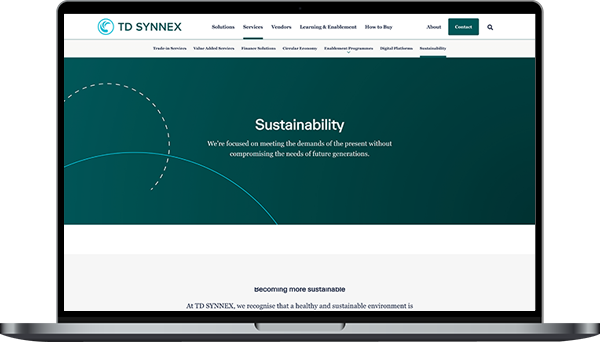TD SYNNEX has drastically reduced the number of A4 pages it needs to print every year by at least 1.3 million, making a further dent in its energy usage and cutting its consumption of paper at the same time.
► Efforts to reduce energy use and carbon consumption continue
► Sustainability remains high on the agenda
The reduction in paper usage is the result of switching to electronic invoicing. TD SYNNEX has been migrating all customers to processes where they can accept invoices via EDI or as PDF documents. Last year, it printed and sent around 1.3m invoices and with many invoices likely to run to more than one page, the actual number will have been significantly higher.

‘While relatively small, it’s a further step in the right direction’, said Kevin Wragg, director, environment and quality compliance. ‘We continue to look at all areas where we can reduce consumption. Electronic invoicing may seem obvious and easy, but with thousands of customers and more than a million invoices every year, it’s quite a challenge.
‘Hopefully, we are setting a positive example and partners will try to emulate us in whatever ways they can. It is important, for obvious reasons, and for customers, sustainability is still very much on the agenda.’
Other in-house schemes aimed at reducing emissions are underway. TD SYNNEX has already successfully reduced its own Scope 1 and Scope 2 Greenhouse Gas Emissions and continues to work with courier partners on Scope 3.
Earlier this year, TD SYNNEX was named Sustainability Champion and won the Net Zero Project award in the distributor categories of the CRN Sustainability in Tech 2025 awards. The first recognised how TD SYNNEX is leading distributors on sustainability and net zero, the second its success in reducing UK energy consumption by more than 20%.
Sustainability
We’re focused on meeting the demands of the present without compromising the needs of future generations.


